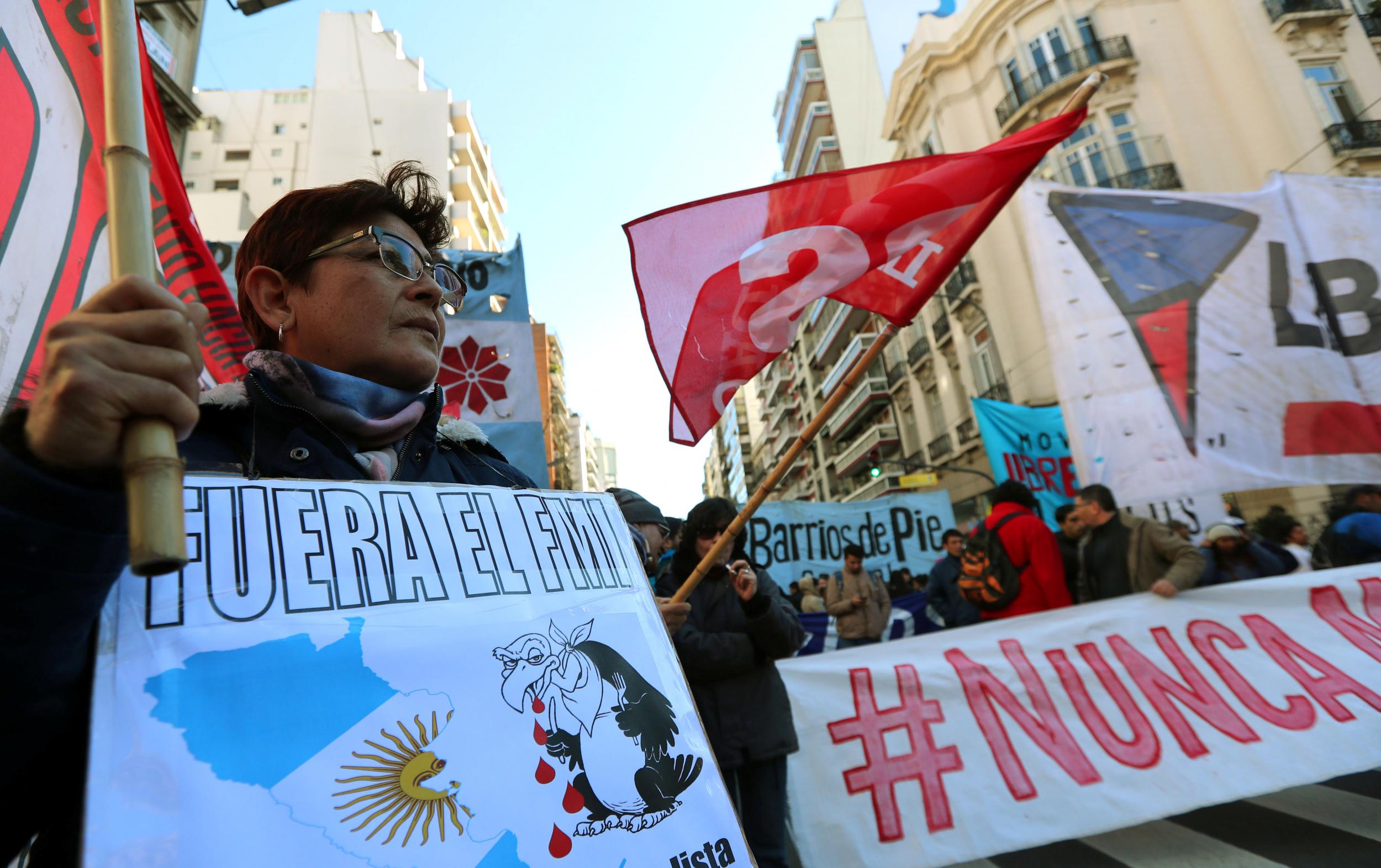Argentina Peso crisis: Government could close 10 ministries in effort to stabilise plummeting currency
IMF demands country tackles mounting fiscal deficit

Your support helps us to tell the story
From reproductive rights to climate change to Big Tech, The Independent is on the ground when the story is developing. Whether it's investigating the financials of Elon Musk's pro-Trump PAC or producing our latest documentary, 'The A Word', which shines a light on the American women fighting for reproductive rights, we know how important it is to parse out the facts from the messaging.
At such a critical moment in US history, we need reporters on the ground. Your donation allows us to keep sending journalists to speak to both sides of the story.
The Independent is trusted by Americans across the entire political spectrum. And unlike many other quality news outlets, we choose not to lock Americans out of our reporting and analysis with paywalls. We believe quality journalism should be available to everyone, paid for by those who can afford it.
Your support makes all the difference.Argentina is set to make a series of spending cuts in an effort to stabilise the country’s spiralling currency crisis after the peso lost more than half its value this year despite measures to prevent the slide.
The central bank raised interest rates by 60% on Thursday in an attempt to restore confidence in its ailing currency but the move failed to have a substantial effect, with the government poised to announce deep austerity measures on Monday.
Reports have suggested that around 10 government ministries could be closed, as the south American country’s finance minister Nicolas Dujovne prepares to travel to Washington on Tuesday to meet with Christine Lagarde, the head of the International Monetary Fund.
Mr Dujovne is aiming to hasten IMF payments to the imperilled economy as part of a deal agreed in June.
The monetary organisation is demanding that Argentina tackles its mounting fiscal deficit, which would almost certainly require it to vastly reduce government spending.
President Mauricio Macri said a lack of trust from the markets forced him to seek assistance with inflation running at 30%, amid a weakening peso - one of the world’s worst performing currencies this year - as investors fear Argentina will be unable to pay its debts.
One of the bond market’s biggest investors, Franklin Templeton, has lost $1.23bn in two weeks on just three of its biggest Argentine positions, according to the Financial Times, with 4% losses across its bond funds during August.
Despite rampant inflation, the IMF expects Argentina's economy to stabilise by the end of the year before a gradual recovery begins in 2019.
However, the organisation is held in low esteem by many Argentinians for its perceived role in the country’s 2001 economic crisis, after the delivery of a $50bn loan preceded a sudden weakening of the peso and the largest sovereign default in history - plunging many ordinary people into poverty.
Mr Macri came to office after campaigning to get a hold of the country's ballooning debt, following almost a decade of protectionist economic policies under his predecessor Cristina Fernandez de Kichner that saw everyday goods and services subsidised.
The US dollar has gathered strength this year amid a tightening of American monetary policy, a move that triggered a series of economic crises in the developing world 20 years ago as states’ debt grew in real terms.
Some commentators have argued this is a set of highly reminiscent circumstances as Argentina’s government debt in dollars steadily grows, despite measures to control the crisis.
Join our commenting forum
Join thought-provoking conversations, follow other Independent readers and see their replies
Comments